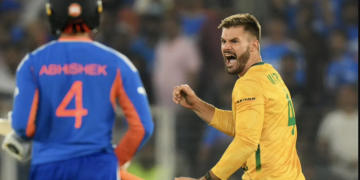Smallholder vegetable farmers in Zimbabwe could lose thousands of dollars due to the lockdown enforced by the government to combat the spread of Covid -19 pandemic that has ravaged communities across the globe. Covid -19 and the response measures particularly lockdown and social distancing could not have come at a worse time for many smallholder farmers, particularly women. The lockdown policy response, though necessary to break the coronavirus transmission chain, threatens to disrupt agricultural markets and supply chains for smallholder farmers already reeling from the effects of the 2018-19 and 2019-20 drought, fall army-worm and underlying economic challenges.
On 30 March 2020, the Government of Zimbabwe enforced a 21-day nationwide lockdown in response to the Covid -19 pandemic that threatens to bring down global economies and communities. The nationwide lockdown was abrupt, with the citizens given only two weekend days to stock up supplies for the lockdown.
A snap survey conducted by Oxfam in Zimbabwe in its project areas shows that, unless the government comes up with targeted policy measures to support the farmers during the lockdown period and beyond, thousands of smallholder farmers stand to endure losses that will worsen hunger, malnutrition, poverty, inequality and vulnerability to the climate crisis among other challenges rural farmers are already battling with.
Beneficiaries of Tapudzai Garden in Ward 11 of Gutu District (about 250 km southeast of the Capital City of Harare) whose quarter hectare of tomatoes is currently under production, expect to start harvesting their crop in two weeks’ time (18 April). Members of the Tapudzai garden comprising of 19 women, 10 men and 7 youth farmers are anticipating a yield of about 10 000kg from their irrigated quarter hectare. Tomatoes are fetching ZWL9.30/kg at the market and the members were hoping to get a gross income of at least ZWL93,000 (US$3,577) which translates to a net income of US$1,802 after production costs.

If the lockdown persists and the tomatoes are not sold as expected, Tapudzai garden members stand to lose almost USD2000, a loss which the members cannot afford now given the underlying economic challenges bedevilling the nation.
Small scale vegetable farmers, mostly women, in Gutu district whose crops are almost ripe for harvesting, have cited access to markets as their major challenge during this lockdown. Cellestino Chakabuda (58) a father of five and one of the members of the recently constructed Tapudzai solar driven market garden in Ward 11 under the SIDA supported Oxfam in Zimbabwe and partners Climate Adaptation for Rural Livelihoods (CARL) project, has this to say:
“We had planned to sell our vegetables including cabbages, tomatoes and beans to nearby boarding schools and the Gutu town market, but now with the lockdown in place, we don’t know what we are going to do. Schools have been closed and the market is closed as well, so there is barely no market to sell our vegetables to” said a distraught Chakabuda.
“Vegetables have a short shelf life, the crops are almost at harvesting stage and we are not sure what to do if the lockdown persists beyond 21 days and schools remain closed”. On the 3rd of April 2020, the President of Zimbabwe Emerson Mnangagwa in a televised address, relaxed the lockdown measures when he ordered the police to allow farmers to deliver their produce to urban centres. This came after shocking images of police burning a truckload of vegetables in Mutare’s Sakubva market flew all over social media.
Chakabuda however said commendable as the President’s gesture was, it did not do much in addressing the market challenges the communal farmers still have to face in the wake of the lockdown. “Though the President said we can now go with our produce to urban markets, our challenges still remain. For starters, there are no buses on the road to carry our vegetables to town because all public transport was banned from operating during the lockdown except for Zupco buses but these are all concentrated in urban centres. So how are we going to get our vegetables to town? If schools remain closed, our challenges are far from over as accessing urban markets is a toll order for most of us” said Chakabuda.
He further added that even if they somehow manage to get their produce to urban markets, the market still remains too small to cater for both communal farmers and commercial farmers as most vegetable vendors and small shops that usually buy smallholder farmers produce remain closed due to the unpredictability of the situation. Chakabuda said he fears if they do not get a market for their produce at the earliest possible time, all their efforts may go down the drain and they may be unable to send their children back to school when they reopen.
Chiedza Hungwe (36) a mother of five and also a member of the same project weighed in “There hasn’t been much crop yield in most farmers’ fields this year owing to drought and our only hope was income from the recently constructed market garden which has constant supply of water”.
Even farmers in irrigation schemes have not been spared from supply chain and market disruptions brought about by the Covid-19 pandemic and lockdown response measures. In the SIDA – Oxfam supported Ruti and Mutunha Irrigation Schemes in Gutu and Buhera districts respectively, farmers must prepare for the winter crop season but are finding it difficult to move around to sell their produce, source agricultural inputs and conclude supply contracts.
“As a farmer, I need to move from place to place looking for markets, interact with extension officers and buy inputs. Now with the lockdown and social distancing measures, it’s already a nightmare for most of us farmers to access markets and procure inputs for the upcoming winter cropping season which starts in May” said Mary Chinembiri (35) of the Ruti irrigation scheme. Failure by farmers to procure agricultural inputs and access markets could spell major disruptions to Zimbabwe’s food supply chain. Farming activities follow seasons and getting things done on time often separates a successful farming season from an unsuccessful one.
“Our first crop is almost ready for harvesting and we were preparing to sell the produce at the nearby Murambinda growth point and started contract negotiations with private sector off-takers for a winter crop but now all that has been put into disarray because of the COVID-19 pandemic and the lockdown imposed by the government”, said Moline Mudzukwa (49), a beneficiary of the Mutunha irrigation scheme and garden implemented in Buhera District through SAFIRE under the CARL project. “We are between a hard place and a rock, as we want to stay safe from Covid-19 but also continue with our farming business”, said most farmers across the three districts.
These farmers’ voices highlight the worries about socio-economic effects of COVID-19 among smallholder farmers in Zimbabwe and the urgent need for policy measures that alleviate hunger and that address poverty and inequality for rural constituencies.










